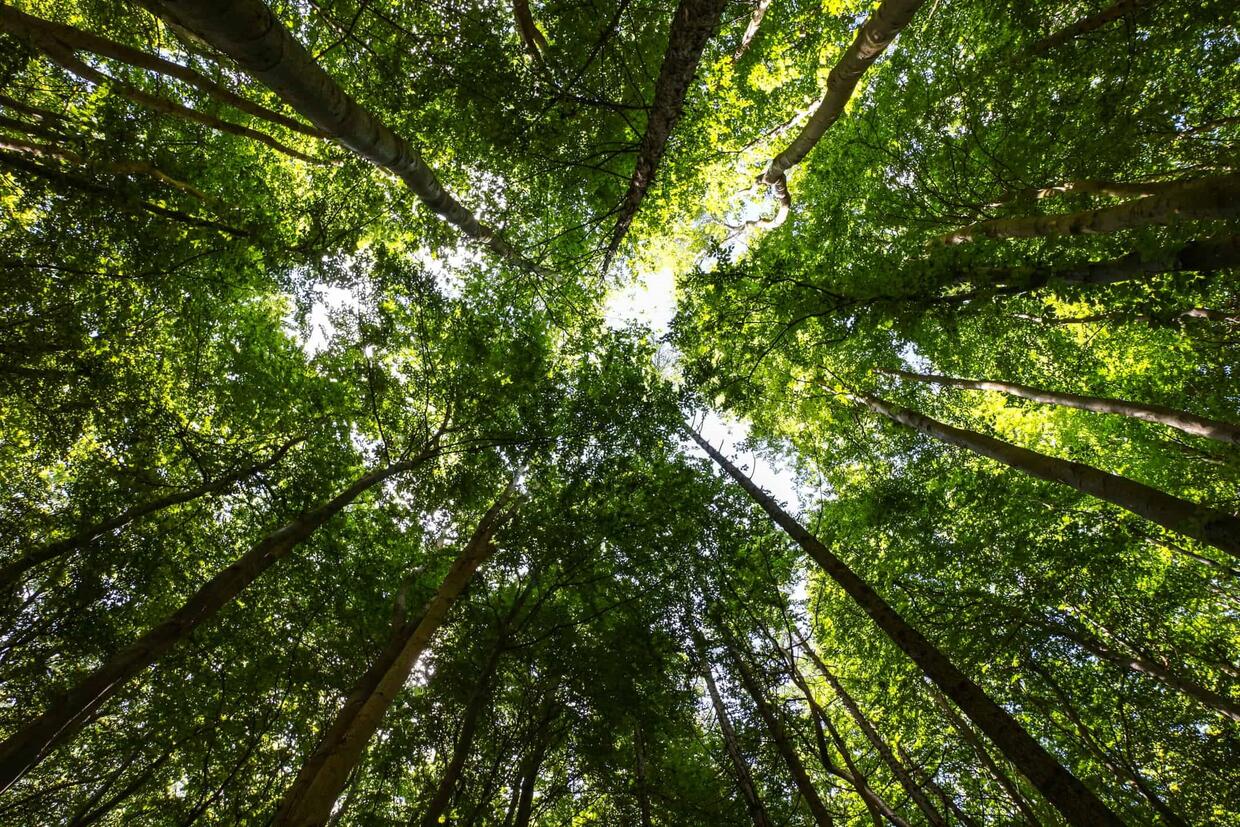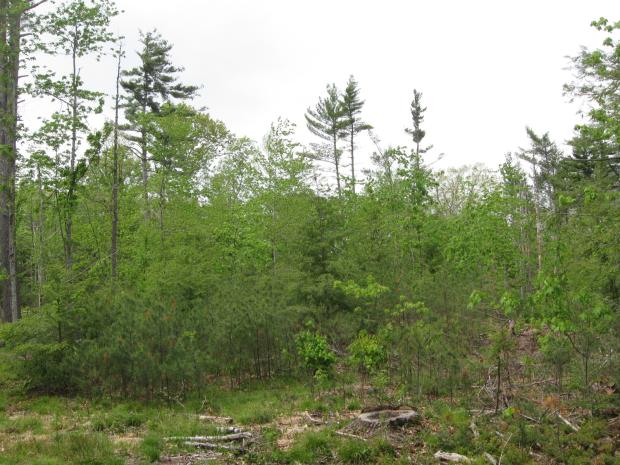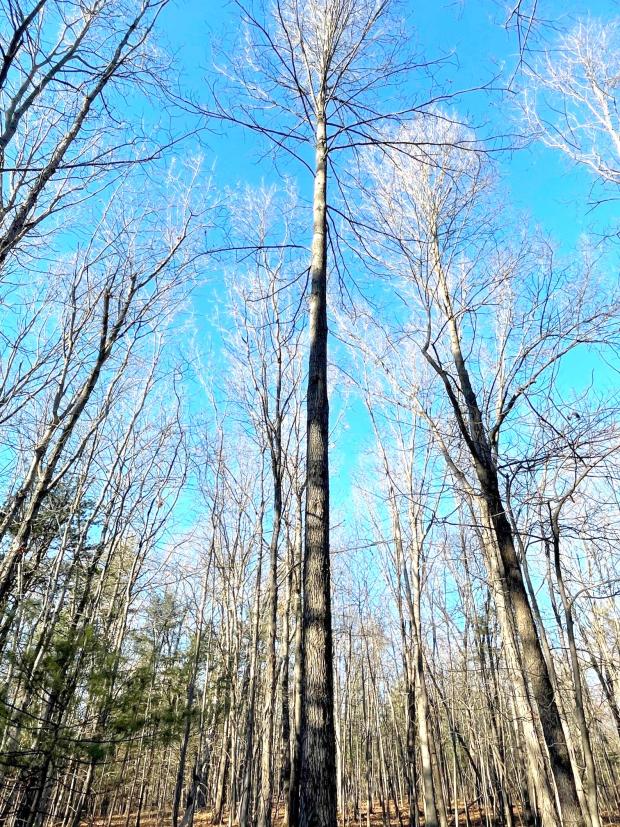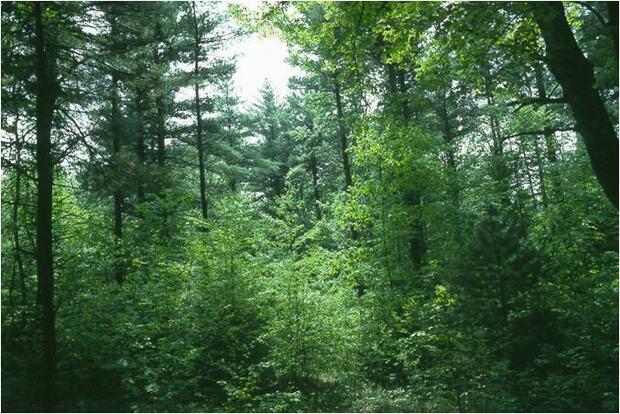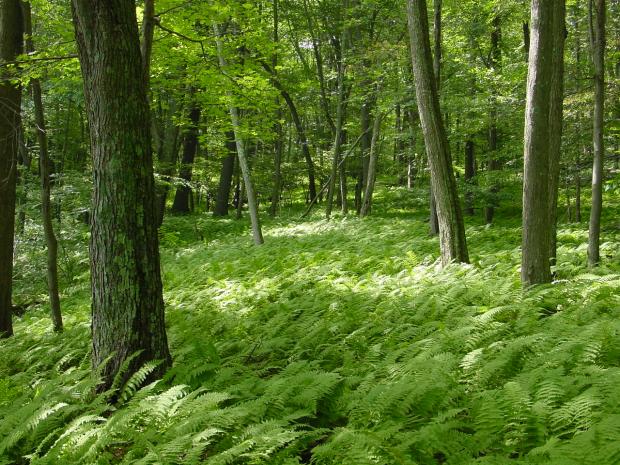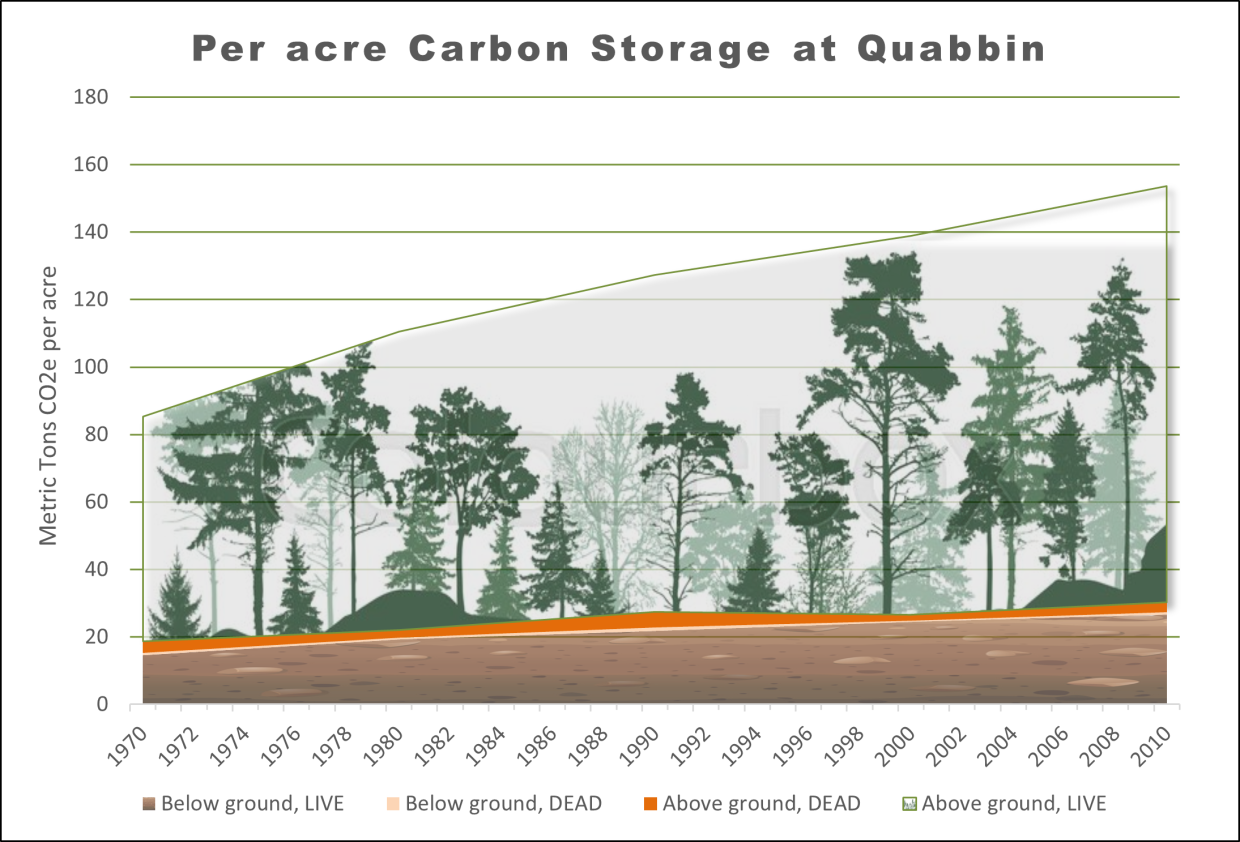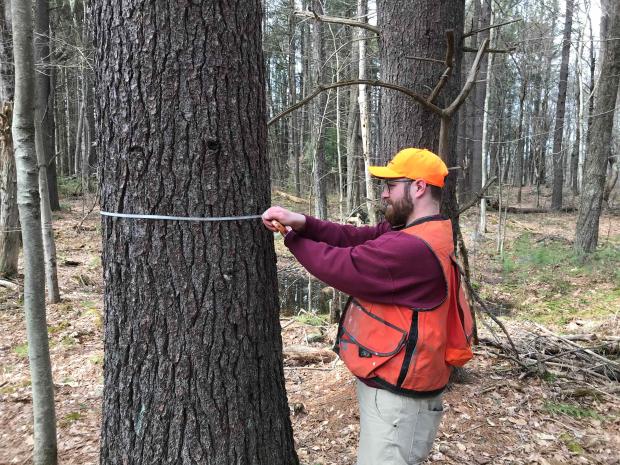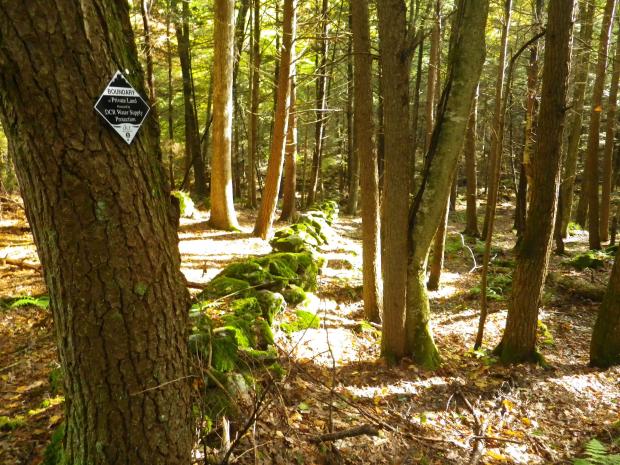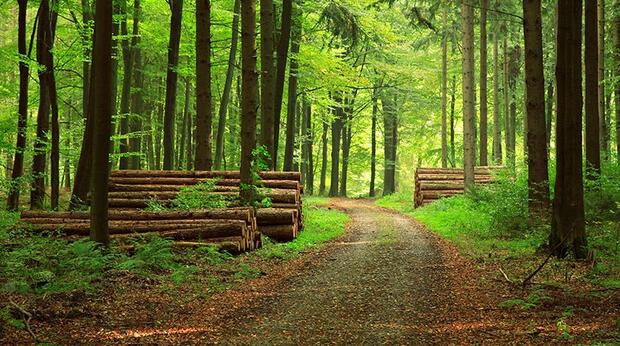Climate Resilient Forest
Through the application of sound, sustainable, watershed forest management techniques, DWSP-owned forested lands are deliberately managed to promote age, size, and species diversity – all key features that make up a climate-resilient forest.
DWSP’s forest management provides these forest types:
- Young forest. Patches of seedlings and saplings, often more diverse than the surrounding mature forests, are less susceptible to large wind events. Providing a continuous, rotating mosaic of these patches plays an important role in diversifying available wildlife habitat while establishing the next forest.
- Rapidly growing forest. Trees in their actively growing prime accumulate biomass faster than older trees, pulling carbon dioxide from our atmosphere and locking it into wood.
- Mature forest. Sustainably harvested mature trees provide wood products we all use, some of which will last and store carbon for decades or centuries. Harvesting is deliberately patterned to provide disturbances in a range of sizes and at frequencies that promote species diversity and improve resiliency in the future forest. DWSP only manages about 1 percent of its forests each year.
- Limited Management Forested Areas. Areas set aside from active management, subject only to natural disturbance, where old growth conditions are being allowed to redevelop after centuries of human use.
Additional Resources
Carbon Storage in DWSP Quabbin Watershed Forest
Data from the primarily forested DWSP property reveals the tremendous amount of carbon sequestration and storage in DWSP forests.
Long-term monitoring data collected from Continuous Forest Inventory (CFI) plots demonstrate that most of DWSP's forests are maturing and relatively healthy. A carbon storage profile (excluding soil carbon) for a typical acre of Quabbin Reservoir forest was developed in 2019 based on CFI data collected from 1970 - 2010. The results show a clear trend of increasing carbon accumulation across all Quabbin lands, primarily from live tree growth.
The equivalent carbon dioxide (CO2e) storage at Quabbin grew from an average of 85 tons/acre in 1970 to 153 tons/acre in 2010.
During this same 40-year period DWSP conducted about 1,000 forest management operations at Quabbin, demonstrating DWSP’s forests accumulate and store a lot more carbon through forest growth than is released through harvesting.
Watershed System Carbon Storage Estimates
A full analysis of all DWSP CFI data is underway - including data from the 2019-2021 measurement cycles at Quabbin Reservoir, Ware River, and Wachusett/Sudbury Reservoirs. The final report will include a more detailed carbon budget estimate, including long-term storage, gains from tree growth and land acquisition, and losses from tree mortality and harvest.
Extrapolating the 2010 Quabbin estimate (153 tons CO2e/acre) to all DWSP-owned forested lands (2017 DWSP Land Management Plan, Table 3-6) means DWSP is storing the equivalent of over 14 million tons of CO2 in live above and below ground biomass. Soil carbon, leaf litter and standing dead snags and fallen trees (deadwood) likely accounts for another 30-50% more stored carbon.
Land Protection and Carbon Sequestration
Protecting watershed forests from development is an essential component of a carbon storage strategy.
The biggest loss of carbon sequestration and storage is conversion of forests to other land uses, particularly residential and commercial development. Land protection plays a critical role in helping the Commonwealth meet its greenhouse gas emission reduction goals while also providing vital drinking water protection. DWSP’s Land Acquisition Program identifies sensitive watershed lands and protects these resources in two ways:
- Outright purchase, with the DWSP owning and managing the land in perpetuity.
- Obtaining a permanent agreement in which DWSP pays for the landowner to give up certain rights to their land. DWSP staff monitor all activities occurring on lands protected through these Watershed Preservation Restriction (WPR).
Since 1985, DWSP has protected nearly 27,500-acres of forested land through 613 acquisitions in the Quabbin Reservoir, Ware River, and Wachusett Reservoir watersheds, preventing the release of over 4 million tons of CO2 into our atmosphere.
DWSP Forestry and the Commonwealth's Climate Change Mitigation Strategy
In summary, DWSP's forest management program contributes to the Commonwealth’s climate change mitigation strategy in several ways:
- Protecting and managing forested lands as a biological filter for long-term public water supply.
- Storing carbon and removing large amounts of atmospheric CO2.
- Providing resilience by managing for a structurally and compositionally diverse forest
- Maintaining overall ecosystem diversity and health by creating a variety of wildlife habitats and securing habitat connectivity.
- Mitigating potential impacts caused by predicted severe weather events, temperature/precipitation changes, outbreaks of disease, and invasive plant/pest infestations.
- Providing renewable wood products and supporting local economies.
The DWSP Forestry Program is an integral part of the Watershed Protection Plan approved by MassDEP for the DCR/Massachusetts Water Resources Authority (MWRA) Water Supply System. All proposed forestry work is available for public review and comment prior to its approval in the annual Work Plan approved by the Water Supply Protection Trust.
2.7 million users of this water supply rely on the resilient watershed forest biofilter to provide high quality source water that does not require further expensive mechanical filtration.
Contact Information
Ken MacKenzie
Director of Natural Resources
DCR Division of Water Supply Protection
180 Beaman Street
West Boylston, MA 01583
774-261-1816
Ken.MacKenzie@mass.gov
